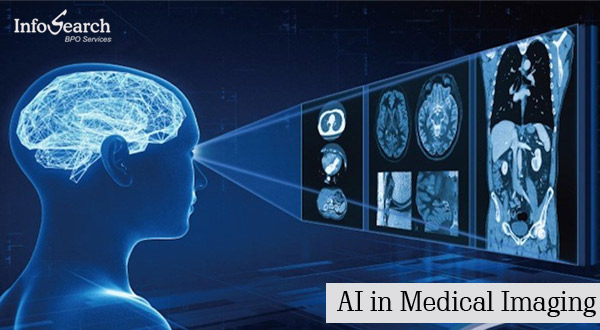
AI Unlocks Uncharted Territory in Medical Imaging DiagnosisAI Unlocks Uncharted Territory in Medical Imaging Diagnosis In the realm of healthcare, medical imaging plays a pivotal role in diagnosing and monitoring diseases. Conventional imaging techniques have long been the mainstay, but the advent of artificial intelligence (AI) is revolutionizing this field by unlocking uncharted territory in diagnosis. Enhanced Accuracy and Precision AI algorithms can analyze vast amounts of medical images with unparalleled speed and accuracy. They can identify subtle patterns and variations that may escape the human eye, leading to more precise and reliable diagnoses. This enhanced precision is particularly valuable in complex medical conditions where early detection is crucial. Increased Efficiency and Cost-Effectiveness AI systems can automate many time-consuming tasks traditionally performed by radiologists. For instance, they can segment images, detect anomalies, and generate reports, freeing up radiologists to focus on more complex and critical cases. This efficiency translates into reduced costs and shorter turnaround times for patients. Expansion of Diagnostic Capabilities Conventional imaging techniques are limited in their ability to detect certain diseases. AI, on the other hand, can process multiple image types simultaneously, allowing for more comprehensive and accurate assessments. This expansion of diagnostic capabilities enables the detection of previously elusive conditions, leading to timely interventions and improved patient outcomes. Personalized Treatment Planning AI-powered image analysis can provide valuable insights into a patient’s individual condition. By capturing unique disease characteristics, AI algorithms can help tailor treatment plans to each patient’s specific needs. This personalized approach optimizes outcomes and minimizes side effects. Remote and Accessible Diagnosis AI-based imaging solutions can be deployed in remote areas or resource-limited settings. This enables access to expert-level diagnosis for patients who may not have immediate access to medical facilities. Telemedicine platforms powered by AI are revolutionizing healthcare delivery in underserved communities. Challenges and Future Directions While AI holds immense promise in medical imaging diagnosis, challenges remain. Ethical considerations regarding data privacy, algorithm bias, and the potential for misdiagnosis must be addressed. Ongoing research and collaboration between AI experts, clinicians, and regulatory bodies are necessary to advance the field responsibly. Conclusion AI has unlocked unprecedented possibilities in medical imaging diagnosis. It has enhanced accuracy, increased efficiency, expanded diagnostic capabilities, enabled personalized treatment planning, and facilitated remote access to expert-level care. As research continues and challenges are addressed, AI will continue to revolutionize this field, ushering in an era of precision and innovation in healthcare.
Posted inNews